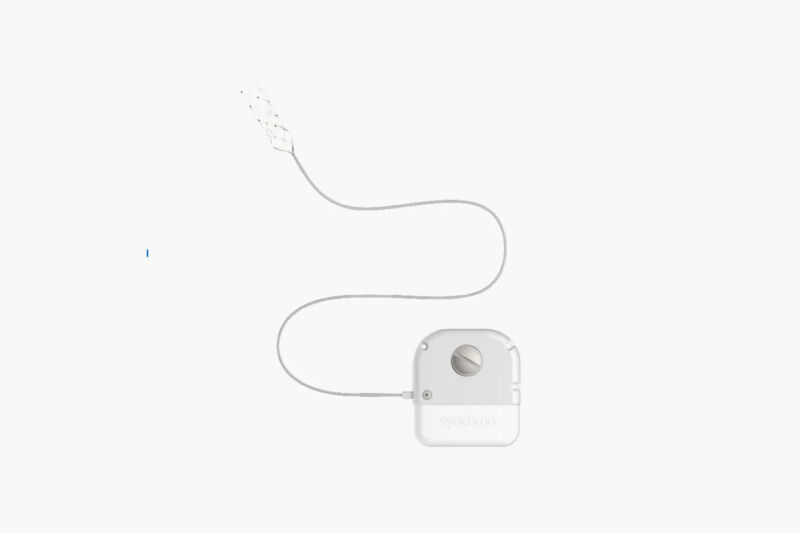
Enlarge (credit: Synchron)
Thomas Oxley has a love-hate relationship with Black Mirror. On the one hand, he can appreciate the show’s “gripping” appeal. On the other hand, it means facing a deluge of accusations that he’s spearheading humanity’s dystopian future.
Oxley is the founder and CEO of Synchron, a company creating a brain-computer interface, or BCI. These devices work by eavesdropping on the signals emanating from your brain and converting them into commands that then enact a movement, like moving a robotic arm or a cursor on a screen. The implant essentially acts as an intermediary between mind and computer.
“[Black Mirror is] so negative, and so dystopian. It’s gone to the absolute worst-case scenario … so much good stuff would have happened to have gotten to that point,” he says, referring to episodes of the show that demonstrate BCI technology being used in ethically dubious ways, such as to record and replay memories. The “good stuff” is what Oxley is trying to do with his company. And on July 6, the first patient in the US was implanted with Synchron’s device at a hospital in New York. (The male patient, who has lost the ability to move and speak as a result of having amyotrophic lateral sclerosis—a progressive disease that affects nerve cells— has requested anonymity on the basis that he did not wish to promote the device before “experiencing its pros and cons.”)
Read 12 remaining paragraphs | Comments
